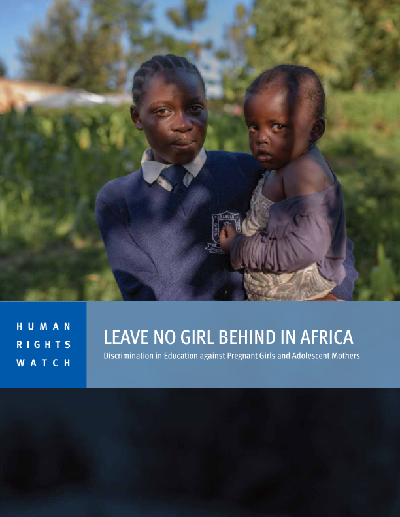



收藏
纠错
这份报告提供了有关阻碍或支持孕妇或已婚女孩接受教育的法律,政策和做法的状态的信息。调查结果表明,尽管一些非洲国家采取了积极措施来解决导致少女怀孕和辍学的障碍,但仍有相当多的国家制定了直接歧视怀孕女孩和青春期母亲的法律法规。该报告还提供了改革建议。
在非洲不让任何女孩落伍 All girls have a right to education regardless of their pregnancy, marital or motherhood status. The right of pregnant-and sometimes married- girls to continue their education has evoked emotionally charged discussions across African Union member states in recent years. These debates often focus on arguments around "morality," that pregnancy outside wedlock is morally wrong, emanating from personal opinions and experiences, and wide-ranging interpretations of religious teachings about sex outside of marriage. The effect of this discourse is that pregnant girls - and to a smaller extent, school boys who impregnate girls- have faced all kinds of punishments, including discriminatory practices that deny girls the enjoyment of their right to education. In some of the countries researched for this report, education is regarded as a privilege that can be withdrawn as a punishment. But the international legal obligation of all governments to provide all children with an education, without discrimi- nation, is clear. In 2013, all the countries that make up the African Union (AU) adopted Agenda 2063, a continent-wide economic and social development strategy. Under this strategy, African governments committed to build Africa's human capital," which it terms "its most precious resource," through sustained investments in education, including "elimination of gender disparities at all levels of education." 【更多详情,请下载:在非洲不让任何女孩落伍】
